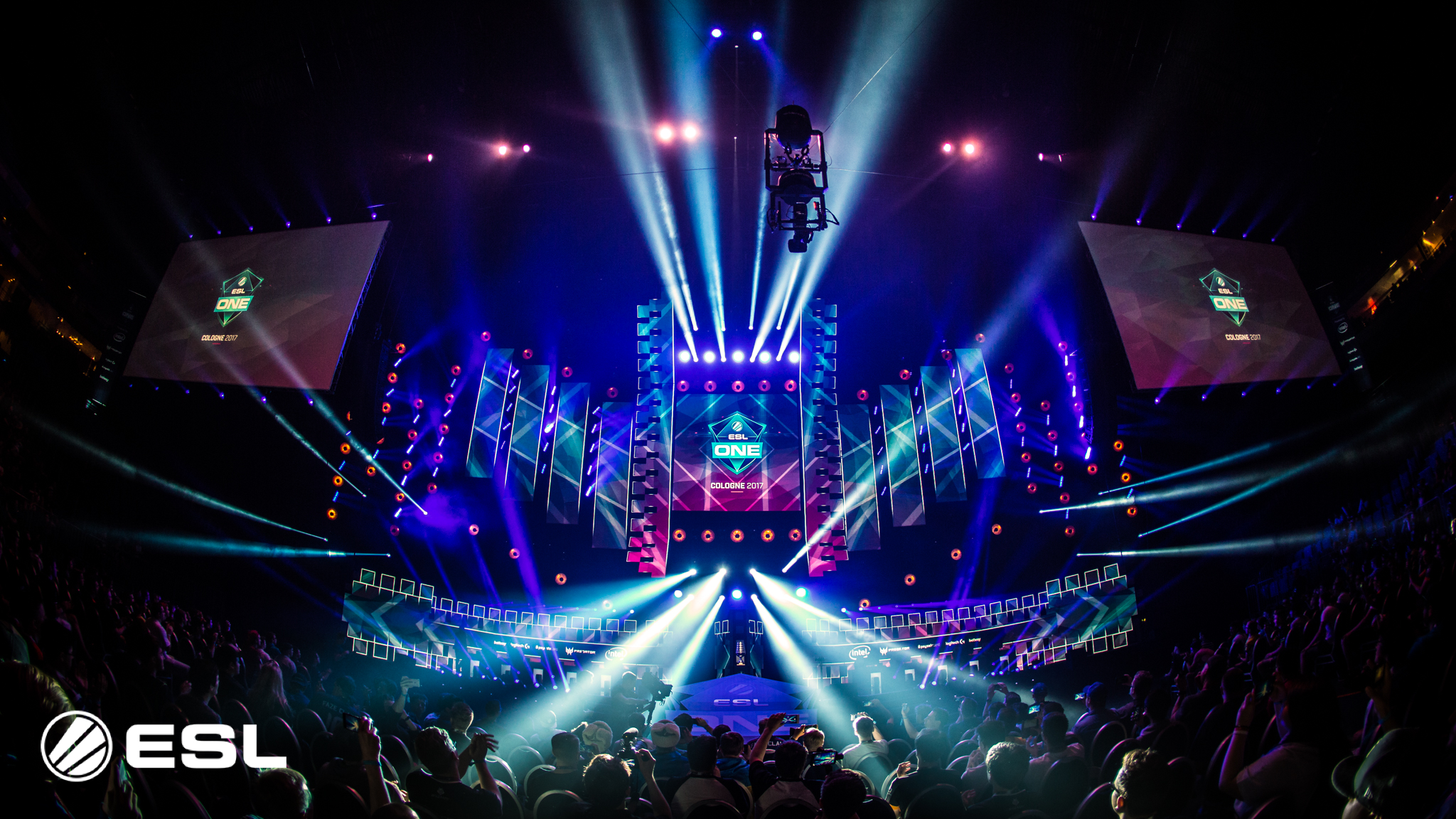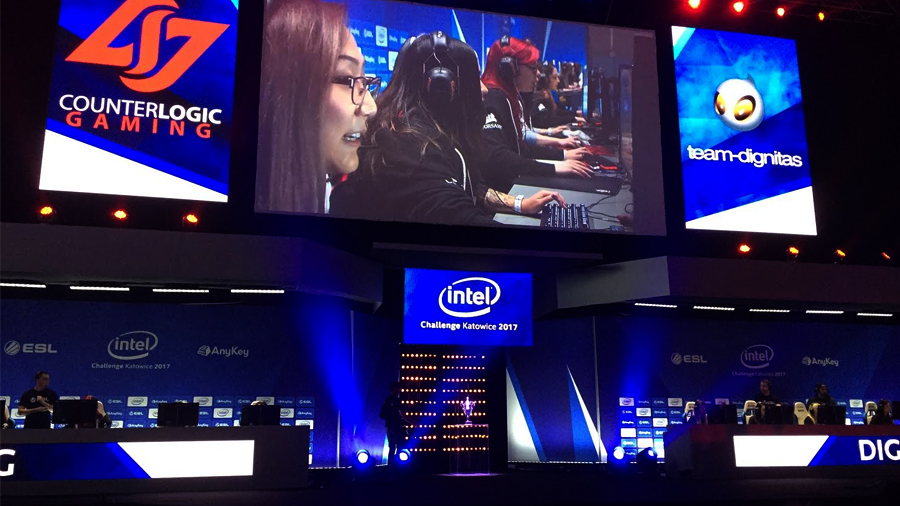
Sign up for breaking news, reviews, opinion, top tech deals, and more.
You are now subscribed
Your newsletter sign-up was successful
Intel is a leading force when it comes to esports in the UK, offering some of the best computing hardware on the market and throwing its weight behind esport tournaments, such as ESL One and Intel Extreme Masters.
However, the company is now looking to invest in the future of the industry and, in particular, university student esport talent.
Earlier this year, Intel announced its sponsorship of the National Student Esports (NSE), the official body of university esports in the UK. You may not have heard of the NSE, but it's essentially the body fighting for university esports players to be taken seriously by the education system – an often difficult and frustrating task for those involved.
Following news of the sponsorship, and the newly announced initiative between Intel, ESL and NSE, we sat down with those involved to discuss the competitive world of university esports and why students could be its future.
Student sparks

The NSE is still a fledgling body, officially founded in 2018. Working with British University and Colleges Sport, the NSE aims to educate and advise universities on esports – helping them create a more hospitable environment for students interested in the industry.
A large part of this is the NSE's British University Esports Championship, which sees 498 university teams battling to be crowned 'Esports University of the Year' and earn the recognition they deserve as a legitimate university team – as well as a chunky trophy for the cabinet.
It's no easy feat. Unsurprisingly, esports isn't exactly viewed in the same vein as soccer or rugby, with students often fighting for dedicated gaming spaces or to be recognized as an official university team.
Sign up for breaking news, reviews, opinion, top tech deals, and more.
"What you find working in the higher education esports space, is that the level of understanding between different institutions can differ quite dramatically," NSE executive director Jon Tilbury tells us. "The university that is running a games course is going to have an understanding of the games industry. So what we did was to make sure that the system is open as possible. Any group of five players from the same university, provided that they can verify that they are students of that University, are able to enter the competition."
"What you find working in the higher education esports space, is that the level of understanding between different institutions can differ quite dramatically"
Jon Tilbury - Executive Director, NSE
So, what if you want to join the NSE's championship? Well, firstly, don't worry if your university isn't exactly being a supportive 'showmom', entering doesn't require membership fee from either the students or the university. There's also a wide range of games that your team can take part in including the likes of League of Legends and Overwatch.
Students earn points depending on where they place in individual competitions, these then translate to points for an overall Olympic medal-type table for all the universities.
The aim is to garner a level of respect for these students and esports as a whole – proving this isn't just a hobby but something that could actually become a career.
"We have students that have developed matchmaking platforms and programs for them to use at their society LAN game event," Tilbury explains. "There are students that have written algorithms to analyze match data that we make available, and then turn that into content that thousands of other students have been engaged with.
"In university sport we see a lot of clubs and teams using those professional skills, using sport as a way of developing those soft skills, to make them a more valuable employee in the future. But in esports we're seeing that from a more focused perspective."
And, that's where Intel comes in.
Intel(ligent) future

Intel has officially become a sponsor of NSE earlier this year – giving the body a much-needed boost in both external support and adding a level of recognition that encourages internal university support.
While having the backing of Intel in name is certainly a positive, the computing company equally sees the promise in encouraging new esports talent within the UK.
"A company like Intel getting behind it and supporting the growth of grassroots esports at a university level is important and should be taken seriously," Scott Gillingham, Intel's UK gaming and esports lead, tells us. "This is where I see an opportunity to bring in our expertise and then help the industry growing in the UK. With the NSE, it's not just specifically about esports players; it's all about the opportunities that are around esports.
"Esports isn't just about the gamer. What [the NSE] is doing is helping build a pipeline of talent for the UK esports industry. Intel coming on board and sponsoring this helps validate the importance and growth of esports and this is something to be looked at and taken seriously, but also helping those universities."
The first major push for this is in Intel's new FutureGen initiative in partnership with NSE and ESL – a program which aims to identify esports talent among students at UK universities.
The program will offer successful applicants experience in esports, letting them have "hands on experience" with NSE and Intel development events before finishing the process with an ESL esport event – like esport work experience heaven.
But, does it really work?

It's all well and good, these bodies and companies telling us how much they're helping students. But, we wanted to talk to someone who is directly affected by the Intel sponsorship to see if, on the ground level, this push is actually paying off.
Enter Mark, a University of Nottingham economics student and avid League of Legends player. Much like any student, Mark played League for fun with friends before going to university and deciding he wanted to kick things up a notch by playing competitively – making a team between seven friends and eventually joined the NSE tournament.
"I'd say on the whole it's been a positive experience," Mark tells us. "It's not that we're not taken seriously, I think it's generally a lack of understanding. There's been a notable difference since the NSE started in. It made people more open to it. If we want to reach out and ask how do we explain to our university or if we're putting on an event, whether they can help us. The reply is always: 'Yes, we'll do out utmost to really help you out'. The NSE is really great in that way."
"Previously, maybe five or 10 years ago if you said you spend your time playing computer games, it would have been seen as a waste of time. Now, I can say I've helped build this community and put on these events and the perceptions has changed. I won't say stigma, but the stereotype about what gaming and esports is has changed."
If you want to apply for Intel's FutureGen initiative then you can apply now. Applications will be open to all students studying full-time at UK universities, but not restricted to those playing in NSE.
Welcome to TechRadar's PC Gaming Week 2019. We're celebrating the most powerful gaming platform on Earth with in-depth articles, exclusive interviews and essential buying guides that showcase everything PC gaming has to offer. Visit our PC Gaming Week 2019 page to see all our coverage in one place.
An award-winning games journalist, with seven years of experience in games journalism and a degree in journalism from City University, London, Vic brings experience from IGN, Eurogamer, The Telegraph, VG247, Dot Esports and more to the TechRadar table. You may have even heard her on the radio or speaking on a panel, as she’s previously appeared on BBC Radio 4, BBC Radio 5, BBC Radio Ulster and more. Not only is Vic passionate about games, but she's appeared on both panels and podcasts to discuss mental health awareness. Make sure to follow her on Twitter for more.